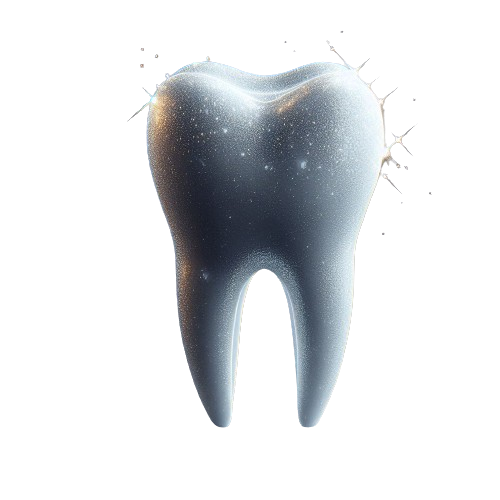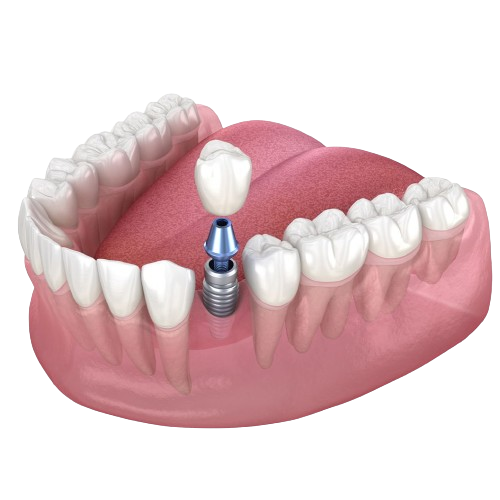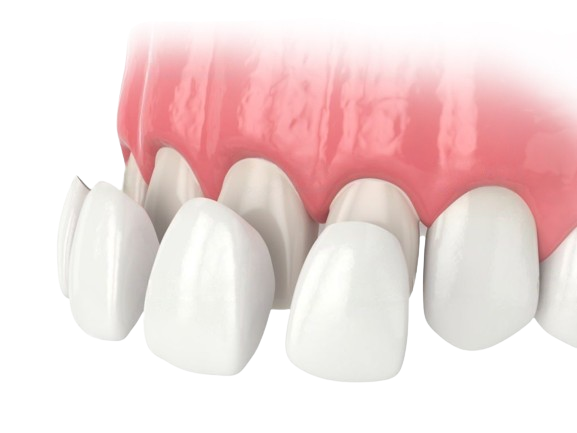Mediheal Plus is your premier destination for top-quality dental care. Our skilled team offers a full range of dental services, from routine check-ups to advanced procedures, all delivered with a focus on patient comfort and satisfaction. We are here to help you achieve a healthy, beautiful smile.
We are dedicated to providing the following high-quality services:

- Dental Implants
- Zirconium Crown
- Hollywood Smile (Comprehensive Smile Makeover)
- Veneers (Porcelain or Composite)
- Emax Veneers (High-Quality Porcelain Veneers)
- Sinus Lift (Sinus Augmentation for Implant Placement)
- Bone Grafting (Bone Augmentation for Implant Support)
- Teeth Whitening (Bleaching)
- Tooth Extraction
Count on us for excellence in every aspect of your dental care.

FAQ about dental implants
What is a dental implant?
Dental implants are artificial tooth roots made of titanium that are surgically placed into the jawbone to support replacement teeth or dental prostheses.
How do dental implants differ from other tooth replacement options?
Dental implants are unique because they integrate with the jawbone, providing a stable foundation for replacement teeth. Unlike dentures or bridges, implants do not rely on adjacent teeth for support.
Who is a candidate for dental implants?
Generally, individuals with good oral health and sufficient bone density in their jaw are suitable candidates for dental implants. However, a thorough evaluation by a dental implant specialist is necessary to determine eligibility.
What is the procedure for getting dental implants?
The dental implant process typically involves multiple stages, including initial consultation, implant placement surgery, healing period, and placement of the prosthetic tooth or teeth.
How long does it take to complete the dental implant process?
The duration varies depending on individual circumstances, but the entire process can take several months to a year to complete, allowing for proper healing and integration of the implant with the jawbone.
Is a dental implant painful?
Local anesthesia is used during the implant placement surgery to minimize discomfort, and most patients report only mild soreness afterward. Pain management techniques are employed to ensure a comfortable experience.
What are the benefits of a dental implant compared to other options?
A dental implant offers several advantages, including improved aesthetics, stability, durability, and preservation of jawbone structure compared to traditional tooth replacement options.
What factors can affect the success of a dental implant?
Factors such as overall health, oral hygiene, bone density, and adherence to post-operative care instructions can influence the success of a dental implant.
How do I care for a dental implant?
Proper oral hygiene, including regular brushing, flossing, and routine dental check-ups, is essential for maintaining a dental implant. Avoiding tobacco use and following dietary recommendations can also support implant health.
Are there any risks or complications associated with a dental implant?
While complications are rare, potential risks include infection, implant failure, nerve damage, and gum recession. These risks can be minimized by choosing a qualified implant specialist and following post-operative care guidelines.
How long does a dental implant last?
With proper care, a dental implant can last a lifetime, making it a durable and reliable tooth replacement option.
Can a dental implant be used to replace multiple missing teeth?
Yes, a dental implant can support individual crowns, bridges, or full arch prostheses, making it suitable for replacing single or multiple missing teeth.
Is dental implant surgery covered by insurance in Turkey?
Insurance coverage for dental implant surgery varies depending on the individual’s insurance plan and the reason for tooth loss. Some plans may cover a portion of the cost, while others may not cover it at all.
What should I expect during the initial consultation with a dental implant specialist?
During the consultation, the specialist will assess your oral health, discuss your treatment goals, and develop a customized treatment plan tailored to your needs.
Are there any alternatives to a dental implant for tooth replacement?
Alternative tooth replacement options include bridges, dentures, and implant-supported prostheses. However, a dental implant is often considered the most natural-looking and functional option for replacing missing teeth.

FAQ about zirconium crown
What are zirconium crowns?
Zirconium crowns, also known as zirconia crowns, are dental restorations made from a strong and durable ceramic material called zirconia. They are used to cover and protect damaged or decayed teeth, restoring their function and appearance.
What are the benefits of choosing zirconium crowns?
Zirconium crowns offer several advantages, including exceptional strength and durability, natural-looking aesthetics, biocompatibility, and resistance to wear and fracture.
How are zirconium crowns different from other types of dental crowns?
Unlike traditional porcelain-fused-to-metal (PFM) crowns, zirconium crowns are made entirely of ceramic material, providing a more translucent and natural appearance. They are also highly resistant to chipping and cracking compared to porcelain crowns.
Who is a candidate for zirconium crowns?
Candidates for zirconium crowns include individuals with damaged, decayed, or discolored teeth who desire a durable and aesthetically pleasing restoration.
What is the procedure for getting zirconium crowns?
The procedure for getting zirconium crowns typically involves multiple visits to the dentist, including tooth preparation, impression taking, crown fabrication, and final placement.
How long do zirconium crowns last?
With proper care and maintenance, zirconium crowns can last for many years, often exceeding 10 years or more.
Are zirconium crowns suitable for front teeth?
Yes, zirconium crowns are highly aesthetic and can be customized to match the color, shape, and translucency of natural teeth, making them an excellent choice for front teeth restorations.
Are zirconium crowns biocompatible?
Yes, zirconium crowns are biocompatible and well-tolerated by the body, making them suitable for individuals with metal allergies or sensitivities.
Can zirconium crowns be used for dental implants?
Yes, zirconium crowns can be used to restore dental implants, providing a strong and natural-looking replacement for missing teeth.
Are zirconium crowns resistant to staining?
Yes, zirconium crowns are highly resistant to staining and discoloration, offering long-lasting aesthetics.
How do I care for zirconium crowns?
Proper oral hygiene, including regular brushing, flossing, and routine dental check-ups, is essential for maintaining zirconium crowns. Avoiding hard or sticky foods and refraining from habits like teeth grinding can also help prolong their lifespan.
Are there any risks or disadvantages associated with zirconium crowns?
While zirconium crowns offer numerous benefits, some potential disadvantages include the need for more tooth reduction during preparation and a higher cost compared to other types of crowns.
What should I expect during the initial consultation for zirconium crowns?
During the consultation, your dentist will evaluate your oral health, discuss your treatment goals, and explain the benefits and potential risks of zirconium crowns. They will also provide information about the procedure, expected outcomes, and cost estimates.

FAQ about dental bridge
What is a dental bridge?
A dental bridge is a fixed dental restoration used to replace one or more missing teeth by bridging the gap between adjacent teeth.
What are the types of dental bridges?
The main types of dental bridges include traditional bridges (where the artificial tooth is held in place by dental crowns on adjacent teeth), cantilever bridges (supported by a dental crown on only one adjacent tooth), and Maryland bridges (adhered to the backs of adjacent teeth using a metal or porcelain framework).
Who is a candidate for a dental bridge?
Candidates for dental bridges are individuals with one or more missing teeth and adequate adjacent teeth or dental implants to support the bridge.
What is the procedure for getting a dental bridge?
The procedure for getting a dental bridge involves multiple steps, including preparation of the adjacent teeth, taking impressions of the mouth, fabricating the bridge in a dental laboratory, and finally, cementing the bridge into place.
How long do dental bridges last?
With proper care and maintenance, dental bridges can last for 5 to 15 years or more. However, the lifespan of a bridge can vary depending on factors such as oral hygiene practices, diet, and general oral health.
Are there any risks or disadvantages associated with dental bridges?
Some potential risks and disadvantages of dental bridges include the need to alter healthy adjacent teeth for crown placement, the possibility of gum disease or decay underneath the bridge, and the potential for bridge failure over time.
How do I care for a dental bridge?
Proper oral hygiene, including regular brushing, flossing, and routine dental check-ups, is essential for maintaining the health and longevity of a dental bridge. Using a floss threader or interdental brushes can help clean underneath the bridge.
Are dental bridges noticeable?
Dental bridges can be made to closely match the color and shape of natural teeth, making them virtually indistinguishable from natural teeth.

FAQ about Veneer
What are dental veneers?
Dental veneers are thin, custom-made shells typically made of porcelain or composite resin that are bonded to the front surface of teeth to improve their appearance.
What problems can dental veneers address?
Dental veneers can effectively address various cosmetic issues such as stained or discolored teeth, chipped or cracked teeth, gaps between teeth, and minor misalignments or irregularities in tooth shape or size.
What are the types of dental veneers?
The two main types of dental veneers are porcelain veneers and composite resin veneers. Porcelain veneers are durable, stain-resistant, and closely resemble natural teeth, while composite resin veneers can typically be placed in a single dental visit and are more affordable.
Who is a candidate for dental veneers?
Candidates for dental veneers are individuals with good oral health who have cosmetic concerns about the appearance of their teeth. A consultation with a dentist will determine if veneers are the right option for your specific needs.
What is the procedure for getting dental veneers?
The procedure for getting dental veneers typically involves several steps, including consultation, tooth preparation, impression-taking, fabrication of the veneers in a dental laboratory, and finally, bonding the veneers to the teeth.
How long do dental veneers last?
With proper care and maintenance, dental veneers can last for 10 to 15 years or more. However, their lifespan may vary depending on factors such as oral hygiene practices, diet, and the quality of the materials used.
Are dental veneers noticeable?
Dental veneers can be custom-made to closely match the color, shape, and size of natural teeth, making them virtually indistinguishable from natural teeth.
Can dental veneers be used to fix crooked teeth?
While dental veneers can improve the appearance of slightly misaligned teeth, they are not a solution for severely crooked teeth. In such cases, orthodontic treatment may be necessary to properly align the teeth.
Are dental veneers reversible?
Tooth preparation for porcelain veneers typically involves removing a small amount of enamel, making the process irreversible. However, composite resin veneers are less invasive and may be removed without significant damage to the natural tooth structure.
How do I care for dental veneers?
Proper oral hygiene, including regular brushing, flossing, and routine dental check-ups, is essential for maintaining the health and longevity of dental veneers. Avoiding habits such as biting hard objects and grinding teeth can also help prevent damage to veneers.
FAQ about Emax veneer
What are Emax dental veneers?
max dental veneers are thin, custom-made shells crafted from high-strength lithium disilicate ceramic material. They are bonded to the front surface of teeth to improve their appearance and address cosmetic concerns.
How are Emax veneers different from traditional veneers?
Emax veneers are known for their exceptional strength, durability, and natural appearance compared to traditional veneers. They require less tooth preparation and offer enhanced aesthetics and longevity.
What are the benefits of choosing Emax veneers?
The benefits of Emax veneers include superior strength, excellent aesthetics, minimal tooth reduction during preparation, resistance to chipping and cracking, and long-lasting results.
Who is a candidate for Emax veneers?
Candidates for Emax veneers are individuals with healthy teeth and gums who wish to improve the appearance of their smile by addressing issues such as discoloration, minor misalignment, gaps, or irregularities in tooth shape or size.
What is the procedure for getting Emax veneers?
The procedure typically involves an initial consultation, tooth preparation, impressions, fabrication of custom veneers in a dental laboratory, and bonding of the veneers to the teeth during a subsequent appointment.
How long do Emax veneers last?
With proper care and maintenance, Emax veneers can last 10-15 years or more. Regular dental check-ups and good oral hygiene habits are essential for maximizing the lifespan of Emax veneers.
Are Emax veneers stain-resistant?
Yes, Emax veneers are highly resistant to staining and discoloration, providing a long-lasting solution for achieving a bright and radiant smile.
Are Emax veneers suitable for front teeth?
Yes, Emax veneers are an excellent option for enhancing the appearance of front teeth, as they can effectively address cosmetic imperfections while providing a natural and lifelike appearance.
Can Emax veneers fix crooked or misaligned teeth?
While Emax veneers can improve the appearance of mildly crooked or misaligned teeth, they may not be suitable for correcting significant orthodontic issues. In such cases, orthodontic treatment may be recommended.
Are Emax veneers reversible?
The placement of Emax veneers involves minimal tooth preparation, but it is considered an irreversible procedure as a thin layer of enamel is typically removed from the teeth to accommodate the veneers.
How do I care for Emax veneers?
Proper care for Emax veneers involves maintaining good oral hygiene practices, including regular brushing, flossing, and dental check-ups. Avoiding habits such as teeth grinding, chewing on hard objects, and smoking can also help preserve the appearance and longevity of Emax veneers.
Are there any risks or disadvantages associated with Emax veneers?
While Emax veneers are highly durable and aesthetic, potential risks include temporary tooth sensitivity, gum irritation, and the possibility of veneer detachment or damage over time. However, these risks are relatively rare when the procedure is performed by a skilled dental professional.

FAQ about Hollywood smile
What is a Hollywood smile?
A Hollywood smile refers to a cosmetic dental treatment that aims to create a perfectly aligned, bright, and attractive smile, similar to those often seen in Hollywood celebrities. It involves various dental procedures to enhance the appearance of the teeth and overall smile aesthetics.
How is a Hollywood smile different from traditional cosmetic dentistry?
While traditional cosmetic dentistry focuses on correcting specific dental flaws, such as discoloration, chips, or gaps, a Hollywood smile takes a more comprehensive approach to transform the entire smile. It typically involves a combination of treatments to achieve a flawless and radiant smile.
What are the benefits of getting a Hollywood smile?
The benefits of a Hollywood smile include enhanced confidence, improved self-esteem, a more youthful appearance, and the ability to achieve a smile that is tailored to your unique preferences and facial features.
Who is a candidate for a Hollywood smile?
Individuals with healthy teeth and gums who desire a significant transformation of their smile aesthetics are typically good candidates for a Hollywood smile. However, a thorough evaluation by a dentist is necessary to determine eligibility and discuss treatment options.
What is the procedure for getting a Hollywood smile?
The procedure for getting a Hollywood smile varies depending on the individual’s specific dental needs and goals. It may include treatments such as teeth whitening, porcelain veneers, dental bonding, orthodontics, gum contouring, and dental implants, among others.
Are there different types of Hollywood smile designs?
Yes, there are various Hollywood smile designs to choose from, ranging from subtle enhancements to dramatic transformations. The design is customized based on factors such as tooth shape, size, color, and facial symmetry, as well as the patient’s preferences and aesthetic goals.
Can a Hollywood smile correct crooked or misaligned teeth?
Yes, a Hollywood smile can address crooked or misaligned teeth through treatments such as orthodontics, porcelain veneers, or dental crowns, depending on the severity of the misalignment and the patient’s preferences.
FAQ about sinus lift surgery
What is a sinus lift surgery?
A sinus lift surgery, also known as sinus augmentation, is a procedure performed to increase the amount of bone in the upper jaw in the area of the molars and premolars. This is typically done to prepare the jawbone for dental implant placement.
Who needs a sinus lift procedure?
A sinus lift may be necessary for individuals who have experienced bone loss in the upper jaw due to factors such as tooth loss, periodontal disease, or natural anatomical variations that result in insufficient bone height for dental implant placement.
How is a sinus lift surgery performed?
During a sinus lift procedure, the sinus membrane is lifted upward, and bone graft material is placed into the space created between the sinus floor and the jawbone. This promotes bone regeneration and increases bone height in the area where dental implants will be placed.
What type of anesthesia is used for a sinus lift?
Sinus lift surgery is typically performed under local anesthesia, with or without sedation, to ensure the patient’s comfort throughout the procedure.
Is a sinus lift a painful procedure?
While discomfort and mild pain are common after sinus lift surgery, proper pain management techniques are employed to minimize discomfort during and after the procedure.
How long does it take to recover from a sinus lift?
Recovery time varies, but most patients can expect to return to normal activities within a few days to a week after sinus lift surgery. Full healing and integration of the bone graft material may take several months.
What are the potential risks and complications associated with sinus lift surgery?
Potential risks and complications include infection, sinus membrane perforation, graft failure, and post-operative swelling or discomfort. However, these risks are relatively rare when the procedure is performed by a skilled oral surgeon
How soon after a sinus lift can dental implants be placed?
Dental implants are typically placed after the bone graft material has integrated with the surrounding bone, which may take 6-10 months. Your dentist or oral surgeon will determine the appropriate timing for implant placement based on your individual healing process.
How long do the effects of a sinus lift surgery last?
The effects of a sinus lift surgery can last a lifetime, providing a stable foundation for dental implants and restoring function and aesthetics to the upper jaw.
Are there any dietary restrictions or guidelines to follow after a sinus lift?
Your dentist or oral surgeon may recommend a soft diet and avoiding hard or crunchy foods for a period of time following sinus lift surgery to promote healing and prevent disruption of the surgical site.
Will I need to take medication after a sinus lift?
You may be prescribed antibiotics and pain medication to prevent infection and manage post-operative discomfort. It’s essential to follow your dentist’s or oral surgeon’s instructions regarding medication use.
Can I drive myself home after a sinus lift surgery?
It’s advisable to arrange for transportation home after sinus lift surgery, as you may experience mild drowsiness or discomfort from the anesthesia or sedation.
Do you need more information about dental treatments?
To have a free consultation and receive a quote, please feel free to reach out

